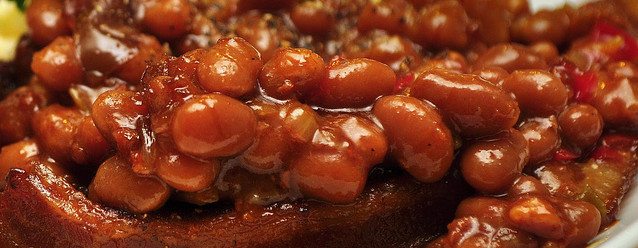Warwick scientists to make baked bean British
Andrew Tock, a PhD student working at The University of Warwick’s Crop Centre, has undertaken a research project aiming to genetically map the navy bean and develop a bean capable of growing in the UK.
The navy bean is most recognisable in the UK when combined with a tomato sauce to make baked beans. Hundreds of millions of baked bean tins are consumed by Britons every year, but none of these beans are grown in the UK.
The majority of the tins consumed in Britain are imported from Canada.
The research project, supervised by Warwick University professors Eric Holub and Guy Barker, will make use of the latest in DNA sequencing technology in order to genetically map and eventually develop new bean varieties capable of thriving in the UK climate.
Warwick Professor Holub said: “the ultimate aim is to produce a bean which is less sensitive to cold soil in spring, is resistant to common diseases that occur over the summer in the UK, and is also ready for harvest in early September.”
“We hope in the near future to begin working in partnership with UK farmers to begin testing whether experimental lines are more suitable for bean production in British growing conditions.”
Tock, the student behind the project that is being funded by the Biotechnology and Biological Sciences Research Council, added:“we think there could be great demand from consumers for a home-grown baked bean.
“Growing navy beans in Britain makes sense from a farming point of view too.
“In addition to the potential market value of locally produced navy beans, growers could stand to make agronomic gains.
“Incorporating a nitrogen-fixing legume break crop into their rotations could promote soil renewal after repeated cereal and oilseed rape rotations.”
The project could go on to have more global benefits. Information gathered from the project and placed into the Warwick Crop Centre database could be made available to farmers in Africa and Latin America to breed new beans suited to local growing conditions, with beans a staple food crop on both continents.
This will add to food security in those regions and make agricultural livelihoods more sustainable.

Comments